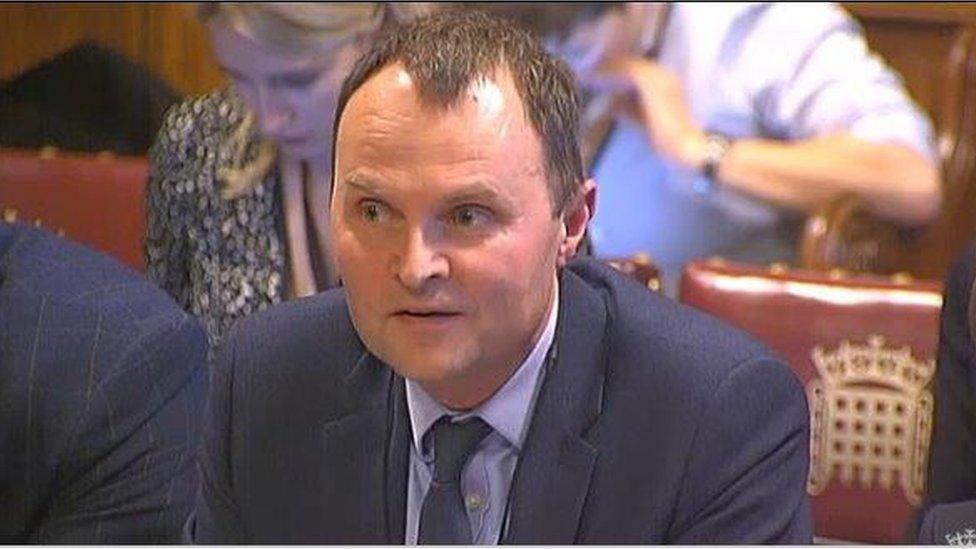Campus free speech fears 'whipped up', says university boss
- Published

There is little evidence that universities are inhibiting free speech argues Prof Tickell
Claims that universities are inhibiting free speech are based on misleading evidence "whipped up to create a moral panic", a university leader has told a Parliamentary committee.
Universities thrive on free speech said Sussex University Vice Chancellor Prof Adam Tickell.
The former universities minister, Jo Johnson has voiced concern that free speech is limited at some universities.
The evidence is part of a Parliamentary inquiry into campus free speech rules.
"We hear all sorts of claims of the inhibition and chilling of free speech in British universities but the evidence base for it is anaemically small," Prof Tickell told the joint select committee on human rights.
He said criticism of his university's free speech record had stemmed from a campus rule banning the use of derogatory language referring to women and "people of colour" and because the student union wanted to check posters before they were put up.
These were "things not relevant to discussions around free speech".
'No no-platforming'
Speakers from the student unions of Sussex and Edinburgh universities said they had never denied a speaker a platform on the basis of their views.
Frida Gustaffson, Sussex University student union president described how UKIP MEP Bill Etheridge last year decided not to go ahead with a planned speech after the student union asked to vet his speech in advance.
She and Edinburgh University Student Union president Patrick Kilduff said they did have a no-platform policy for "six racist, fascist or extremist groups" drawn up by the National Union of Students.
"These processes have never stopped anyone coming to speak at the university," said Mr Kilduff.
Prof Tickell told the committee that reports of books being removed from university libraries were baseless - although there were instances of works by the writer David Irving being removed to restricted shelves.
Baroness Amos, director of London's School of Oriental and African Studies said she did not think anyone had been no-platformed at her university in the past 10 years.
But she said she had detected "a squeezing of our ability to be open, diverse, inclusive".
She said this was in part due to the government's Prevent Strategy which places universities under a duty to stop extremism on campus.
"There are a whole range of things, how we treat refugees, our visa policy, how Prevent is implemented.
"All of these things are having an impact on how young people of colour, Muslims, actually feel in terms of being under additional scrutiny."
Mr Kilduff agreed that Prevent was having an effect on free speech on campus.
He added: "If we believe that free speech is so that people can hold truth to power, especially marginalised groups, this is stopping marginalised groups, Jewish students, Muslim student, black and minority ethnic students from being able to voice their concerns and host events."
The committee is planning to invite individual students from across the UK to share their views and stories online.
Details of how to take part will be announced later this year.